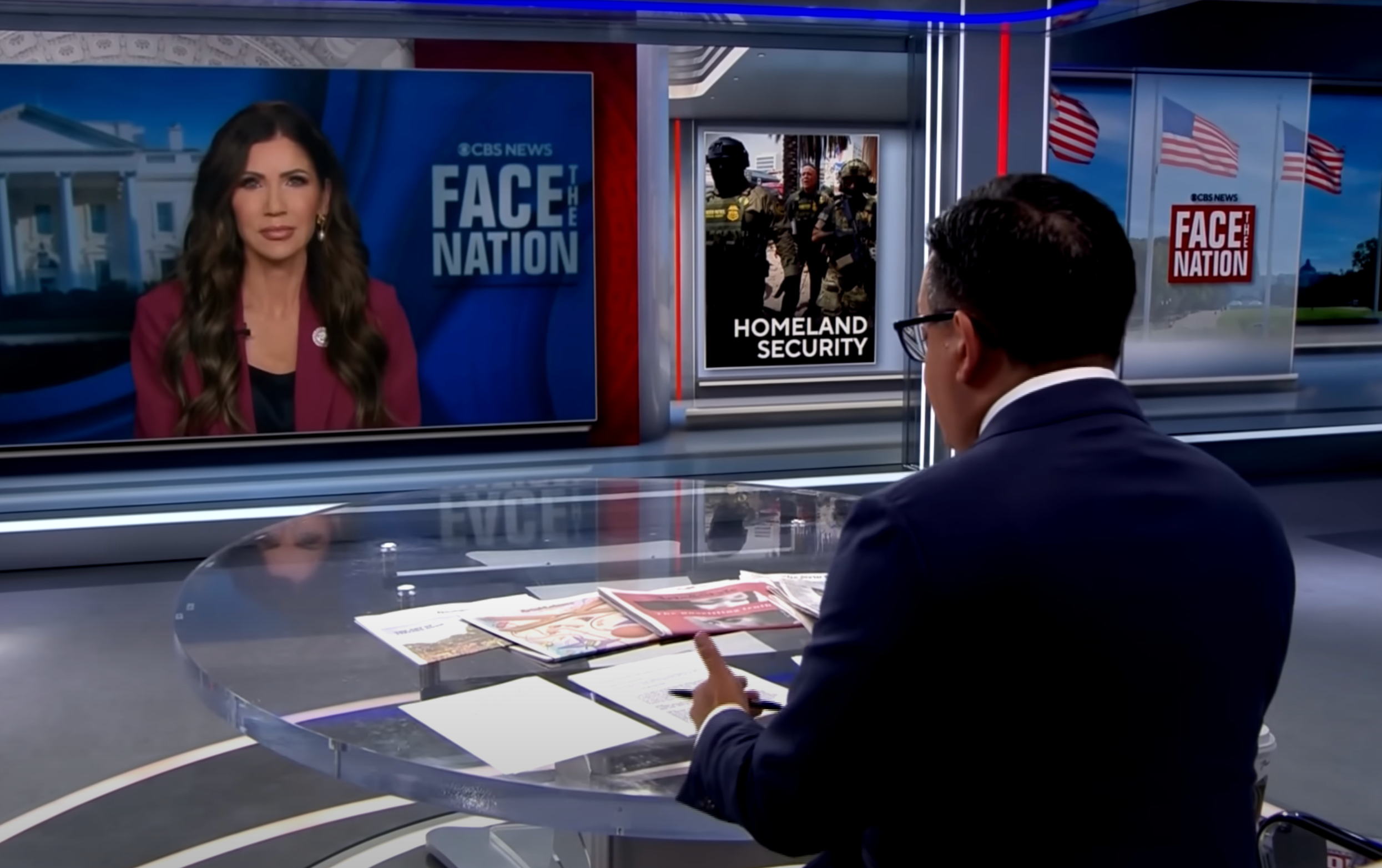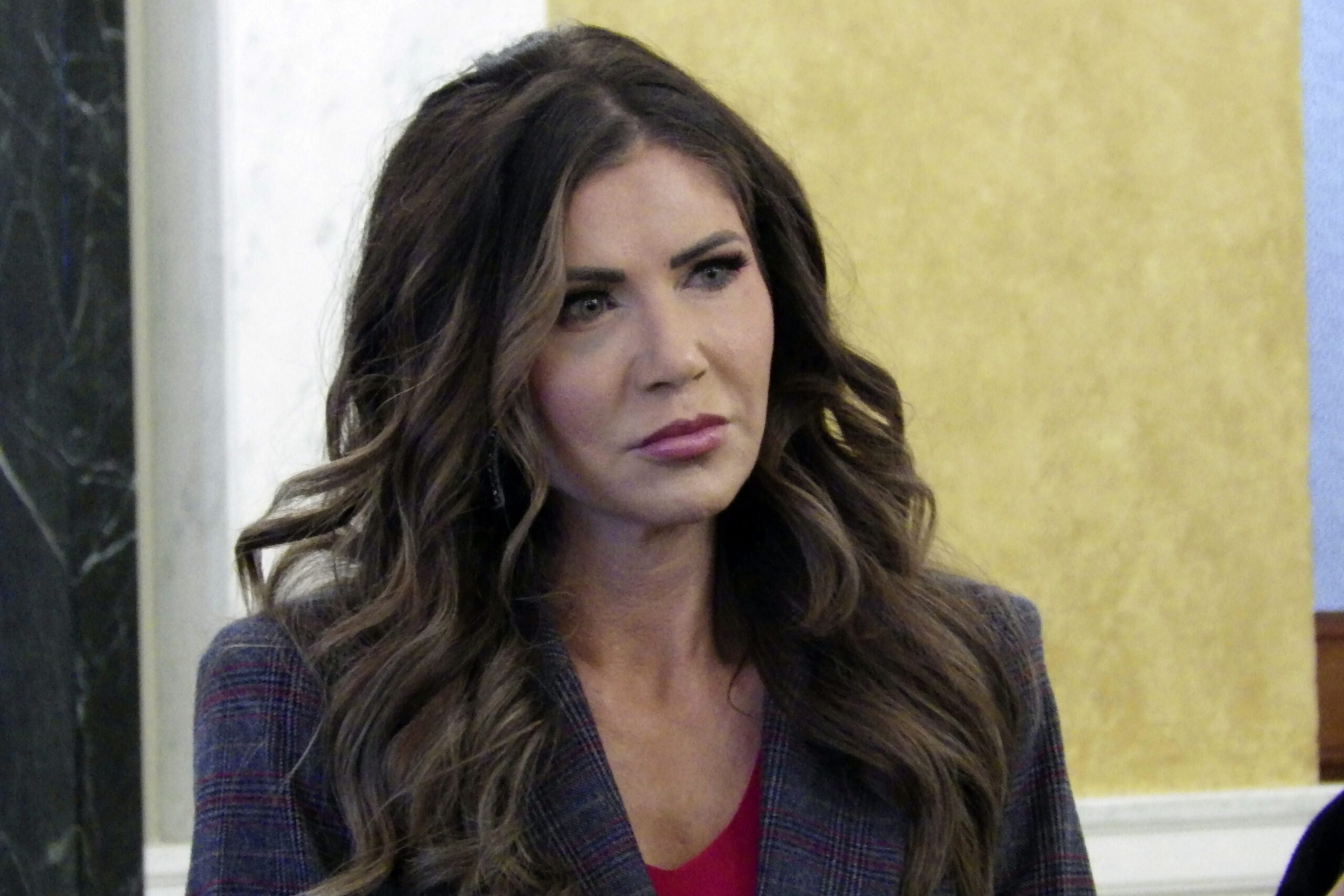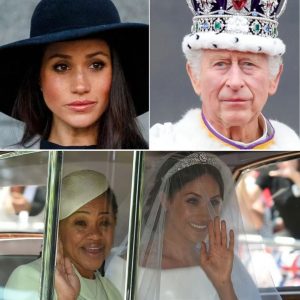CBS News has announced that it will no longer edit interviews on its flagship Sunday program Face the Nation, a decision that comes only days after Homeland Security Secretary Kristi Noem publicly accused the network of deliberately cutting parts of her appearance. The policy shift marks a significant change for one of the nation’s most influential political talk shows, raising questions about editorial practices, transparency, and the risk of amplifying unverified claims.
The controversy began after Noem appeared on Face the Nation on August 31. The interview, which had been taped in advance, was broadcast with several minutes removed for timing purposes, according to CBS. Noem, however, claimed that the edits stripped out key portions of her comments about Kilmar Abrego Garcia, a migrant who was mistakenly deported to El Salvador in what has become a widely publicized case under the Trump administration’s immigration crackdown. She accused CBS of trying to “whitewash the truth” and took to X, formerly known as Twitter, to post the full, unedited version of her remarks.

In her complete response, Noem leveled a series of unverified accusations against Abrego Garcia, claiming he was affiliated with the MS-13 gang, had a history of domestic abuse, and solicited explicit photos from minors. Abrego Garcia has strongly denied those allegations, and no independent verification has been provided. CBS said that the material was removed solely for length, but the secretary’s public criticism reignited debate over whether major networks selectively edit political interviews in ways that can alter their meaning.
Faced with mounting scrutiny, CBS News announced on Friday that Face the Nation would now air only live or live-to-tape interviews, with exceptions for matters of national security or legal restrictions. A spokesperson for the network told The Independent that the move was made “in response to audience feedback over the past week” and was intended to provide “greater transparency” to viewers. They explained that the full, unedited version of every interview would also continue to be posted online, along with transcripts, so that audiences could compare both the broadcast and raw content. The spokesperson did not confirm whether Noem’s complaints were the deciding factor in the policy shift, but the timing left little doubt about the influence her protest had on the network’s decision.
The change comes at a particularly sensitive time for CBS, which has already faced accusations of bowing to political pressure. Earlier this year, Paramount Global, CBS’s parent company, settled a $20 billion lawsuit filed by Donald Trump over his claims that the network had manipulated interviews to damage him politically during the 2024 campaign. Trump accused CBS of committing “partisan and unlawful acts of election interference” by editing portions of Vice President Kamala Harris’s interviews on both 60 Minutes and Face the Nation. Though CBS denied the accusations, Paramount ultimately agreed to pay Trump $16 million to settle the dispute, a move critics say emboldened his efforts to discredit independent journalism.

For critics, the new policy could pose new risks. By pledging not to edit interviews, CBS may inadvertently allow high-profile political figures to make false or inflammatory claims unchecked during the broadcast. While fact-checking segments and real-time pushback from hosts will remain tools for journalists, removing the ability to cut material raises the stakes for live interviews and may force hosts to challenge misleading statements more aggressively in real time. One anonymous CBS staffer told the Associated Press that while the new approach boosts transparency, it also places enormous responsibility on interviewers to confront falsehoods immediately, rather than rely on editorial discretion afterward.
Noem’s full interview has since been made available on CBS’s website and YouTube channel, allowing audiences to view both the aired and unaired portions. Yet her public accusations continue to fuel partisan debates over how mainstream outlets handle sensitive political content. Supporters of the new policy argue that it will help restore trust in CBS by showing viewers exactly what was said, without suspicion of selective editing. Critics warn that such transparency could come at the cost of amplifying unverified or harmful claims.
The announcement underscores the precarious balance media organizations must strike in today’s polarized climate. On one hand, viewers demand full transparency, particularly when political figures claim bias or censorship. On the other, news outlets face the danger of becoming conduits for misinformation if they refuse to exercise editorial control. CBS’s decision suggests that it is prioritizing audience trust at a time when it faces extraordinary scrutiny from both political leaders and the public.

Whether the change strengthens CBS’s credibility or leaves it more vulnerable to spreading falsehoods will depend largely on how its journalists handle interviews going forward. The network has promised that its hosts will continue to fact-check aggressively and push back when necessary. But in an era where political attacks on the press are relentless and the line between transparency and platforming is thin, the decision ensures that every exchange on Face the Nation will be watched more closely than ever before.





